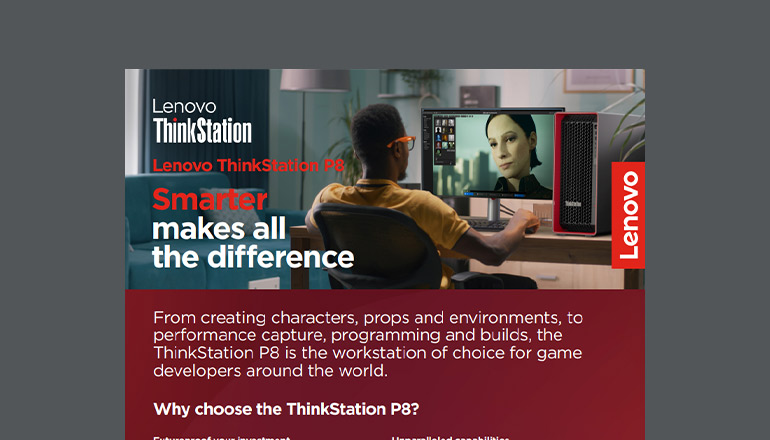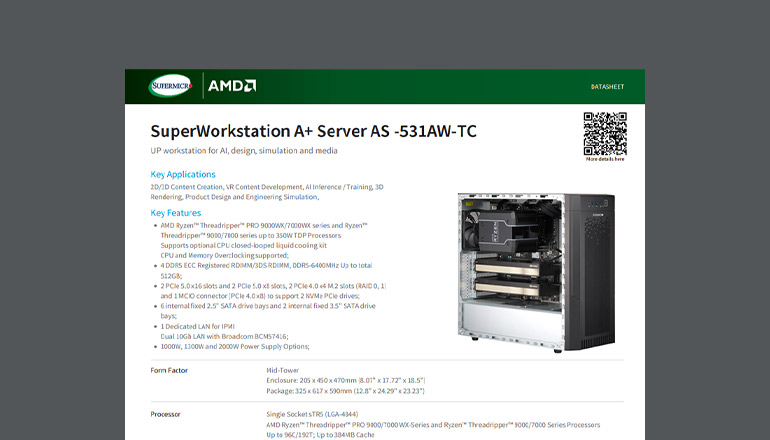Insight announcements AI Adoption Is Accelerating — and Scaling Is a Challenge for IT Leaders
By Stan Lequin / 11 Jun 2025

Insight has been at the forefront of generative AI adoption, from standing up our own private GPT environment to piloting AI PCs in production workflows. This foundation has fueled measurable success across client-facing and internal initiatives.
I get excited when I look at what our clients are doing and see companies like Cabot’s employing AI to drive innovation for their business. With guidance from Insight and Microsoft, their generative AI-powered chatbot, called the Cabot’s Project Assistant, provides automated customer support for DIY woodcare projects. Using advanced AI and cloud technologies, the chatbot dynamically answers questions, provides recommendations and solutions, and frees up the company’s help and advice teams to focus on more complex queries.
That’s progress. But change doesn’t always come easy as many organizations grapple with the complexities of AI adoption. No matter how great the hunger to use it is, AI only works if the right foundation is in place.
Today, we see clients push beyond first-generation bots, embedding generative AI into product development, operations, and knowledge workflows.
I’m also inspired by how clients like Manuka Health are scaling gen AI to streamline everyday operations. With support from Insight and Microsoft, they deployed Microsoft 365 Copilot to help employees with drafting emails and documents faster to summarizing Teams meetings. What began as a test with IT and finance teams quickly expanded across departments once users saw how gen AI could reduce manual work. That kind of tangible impact is what makes AI adoption real
Where IT leaders focused last year
Research by Insight, in partnership with Foundry, an IDG company, illuminates how just about every company is testing AI to some degree. Yet finding success with it is another story.
According to the data in our survey, “The Path to Digital Transformation: Where IT Leaders Stand in 2024,” AI was top of mind with leadership. Our annual state-of-progress survey asked 400 senior IT decision-makers at companies of at least 1,500 employees across various industries about their planned digital transformation initiatives.
Nearly half of technology decision-makers (47%) say optimizing their data estate for AI is their organization’s top digital transformation priority. Furthermore, leveraging gen AI to drive innovation now ranks among their top three IT objectives just two years after its emergence.
Besides AI adoption, they also cited optimizing cloud operations (43%) and strengthening cybersecurity programs (37%) as their biggest priorities.
Where IT leaders stand today
Recent research shows that 90% of enterprise organizations are actively using gen AI, with nearly half of those having progressed beyond the pilot stage and into production. Globally, 71% of organizations report regular use of gen AI in at least one business function, and 95% of U.S. companies say they are using gen AI despite common roadblocks like security, data quality, and governance.
A majority of organizations are now focused on measuring real value: 88% of global organizations are assessing the ROI of their AI initiatives, and 60% have appointed a Chief AI Officer to oversee long-term strategy and alignment. Meanwhile, 92% of Fortune 500 companies are using OpenAI products, reflecting the technology’s foothold within the highest levels of enterprise.
The technology is seeing widespread use across IT, marketing, sales, product development, and customer service. Organizations are hiring for gen AI related roles and investing in internal training to build foundational skills and prompt literacy.
As gen AI I becomes more integrated into business processes, concerns over data security and responsible use are prompting organizations to develop comprehensive AI usage policies. And while optimism is high, 42% of C-suite leaders report that gen AI adoption has introduced internal divisions, highlighting the need for cohesive AI strategies.
Barriers to AI adoption exist
Despite widespread usage, many organizations face internal challenges that limit generative AI’s full potential. Among them:
- Only 36% have implemented the data infrastructure required for AI adoption.
- Less than one-quarter (23%) have optimized and automated best practices for AI.
- 71% have yet to adopt an enterprise AI strategy.
Additionally, the majority (61%) said they must invest further in AI talent and training. They ranked gaps in technology skills and knowledge as the top challenge inhibiting overall digital transformation (44%). Budget constraints followed (43%), while a lack of optimized infrastructure to support new technologies like gen AI was third (42%).
AI Centers of Excellence are now seen as essential for long-term success. While only 29% have built them, 62% are in the process, which we see as key to avoiding shadow projects and ballooning costs. Like many enterprises have learned through their cloud adoption experience, costs and shadow projects can easily get out of control if projects run independent of one another, with little governance in place to guide the management of what is acceptable.
So, while conversational and generative AI may be the big thing right now, it’s only going to get bigger as more organizations take their next steps to capitalize on the phenomenon.
Further priorities beyond AI
Our survey spanned every facet of the digital journey, including how organizations are handling cloud/multicloud, as-a-service models, cybersecurity, platform engineering, and the use of technology to address Environmental, Social, and Governmental (ESG) issues.
Among the key findings:
- Close to 50% reported experiencing a cybersecurity breach over the past 12 months. Just more than half of the organizations were able to recover between one (17%) and multiple days (37%). Some companies were only able to recover after 2-3 months (3%) or longer (3%).
- 87% of respondents reported ESG concerns have an impact on IT investment decisions, with 42% ranking the impact as significant and 45% as moderate. Top issues affected by ESG considerations include investments in technologies for remote/hybrid working, energy-efficient IT infrastructure and devices, and cloud use to reduce energy consumption.
- As much as 46% of public cloud workloads may be repatriated to an on-premises or hybrid cloud environment. Top drivers for these projects are improved security and compliance for sensitive data, enhanced business continuity and disaster recovery, and resolution of performance issues like latency. One third of respondents cited a need to modernize legacy workloads before returning them to the cloud as a primary reason for repatriation. Just 29% named a reduction in cloud spending as a principal motive.
- 96% are leveraging one or more as-a-service delivery models, led by Network as a Service (NaaS) and Storage as a Service (StaaS). 81% are using at least three, 66% at least four, 35% at least five, and 10% are using at least six.

Much of this is the less glamorous backbone work required to establish a strong AI program. After all, the quality of output you’ll get from something like a gen AI-powered chatbot that you want to use as front-line customer service is only as good as the data estate it draws from.
AI represents a paradigm shift in all-around work methodologies and business agility, so it’s not surprising that it is rising to the top of enterprise IT priorities. We see it with our clients daily: They’re unsure about how to unlock the potential of AI to drive new business value.
Organization leaders seek our help to upgrade their infrastructure, train employees on classical and generative AI concepts and prompts, identify use cases, and jumpstart AI projects by using our Insight Lens™ platform’s data ingestion capabilities.
Only when all the pieces of the puzzle are put in place do we see innovation from the Cabot’s of the world truly begin to take shape.




